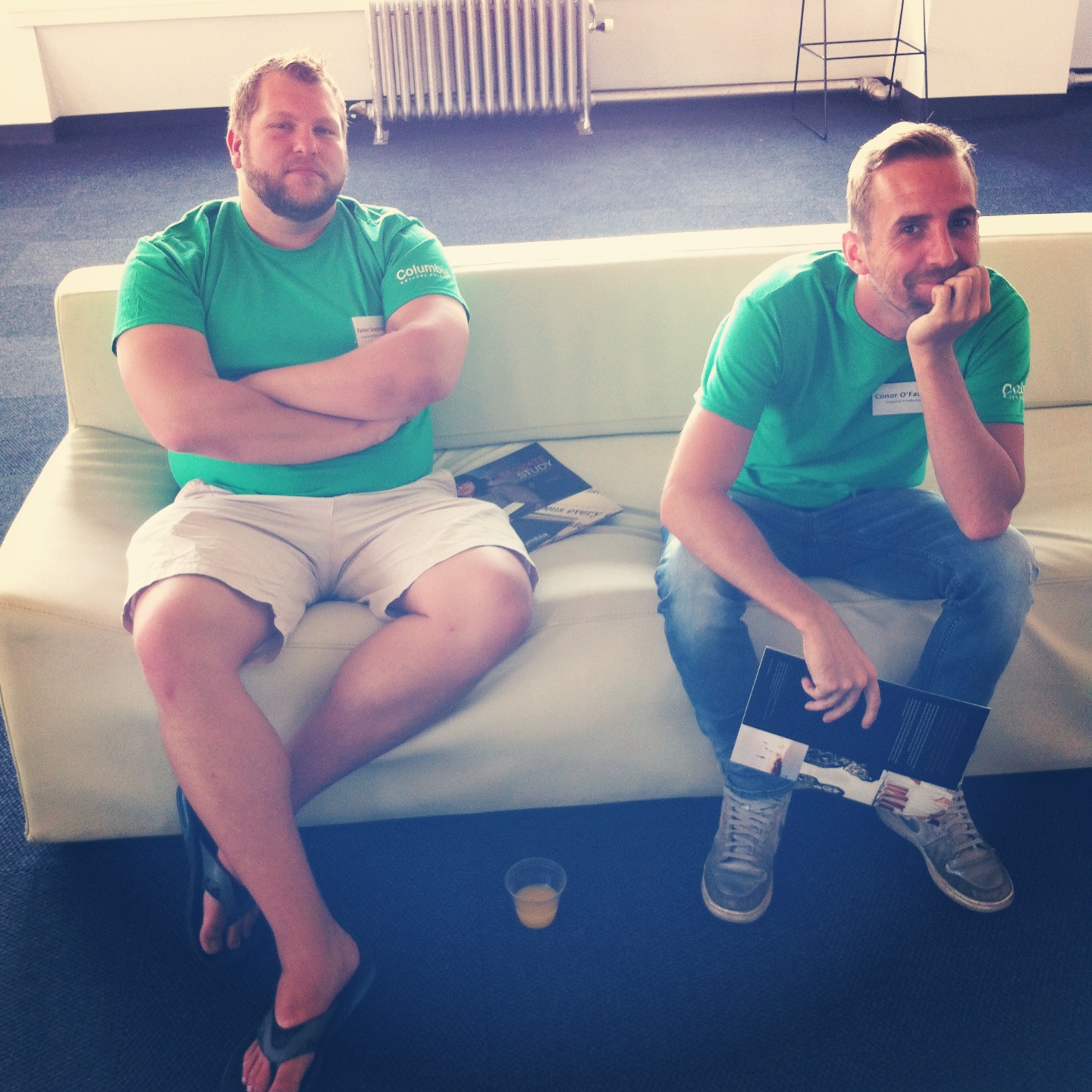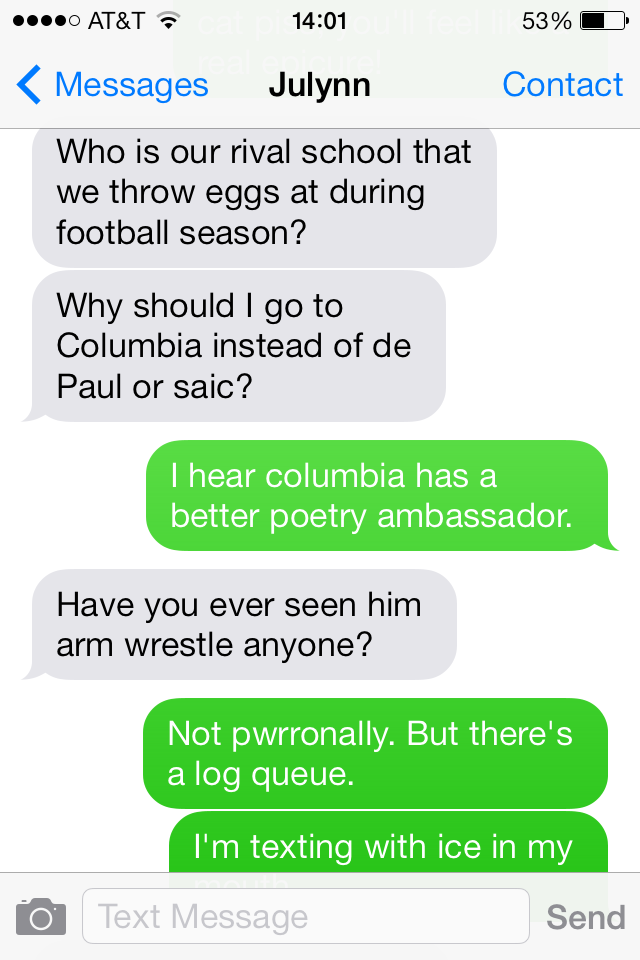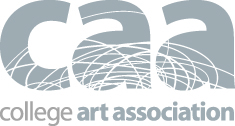For Day 2 of my CAA experience, I’m working at the Columbia College Graduate Admissions booth at the book fair. I’m stoked and totally prepared for questions like, “Are the kids in grad school cool?” “Do you learn a lot?” “Does grad school prepare you for the real world?” “Will you be rich, famous, or both after you finish?” But for the first hour, only two folks come by. “Can I have this pen?” a woman asks. The second is a tweed-vested middle-age dude with a goatee who walks up and is all, “let me fire this one at you.” (Okay.) “Is Columbia College Chicago related to Columbia University?” I look at him for a second. “I know two guys named Mike,” I tell him. “Do you think they’re related?” Well, I wish I’d actually thought of that, but I haven’t had my third cup of coffee yet. And also I have to say, they are pretty cool pens.
I’m working the booth as a Graduate Ambassador representing our grad programs. As an Ambassador, I help facilitate Open House and Orientation, field queries from prospective and admitted students, and blog for another of Columbia’s blogs, Marginalia.
When I get a chance to slip out for a quick hour of panel taste-testing, I catch the tail end of something about environmental water structures in Renaissance art (I think), a slew of images of books on shelves in another discussion, and then I wound up in a talk that seemed like a kind of CAA open mic. I later learned that these were called “lightning sessions” in a forum called THATCamp, a humanities and technology forum on digital art history.
The lightning session that I caught was given by Meredith A. Brown, called Upcycling: Building a Professional Online Presence Through Digital Publishing. Here’s a bit from the abstract about the discussion:
“For early career and emerging scholars in the field of art history, the world of digital publishing is both a blessing and a curse: on the one hand, it can provide innovative and interactive ways to present research; on the other, digital-only publications tend to be seen as less prestigious, less rigorous, and ultimately less useful for career advancement than more traditional (paper) publishing. In an open discussion about the advantages and disadvantages of online publishing, we will ask how digital writing might allow us to “upcycle” other work–in online journals, blogs, and other formats–to create an online presence around our research, how online academic presses and the peer-review process might improve and legitimate digital publications, and whether such publishing initiatives in our field are worth it.”
The abstract was pretty much all that Brown had time to give to the room, but she shared a Google Doc in its early stages that serves to help open up a conversation about the upsides and snags of digital publishing and scholarship. In order to start the dialogue, A.L. McMichael and Andrew Reinhard (Director of Publications, American School of Classical Studies at Athens) respond to a short series of questions that touch on the role of digital publishing in professional development and tenure, the benefits of digital research for both emerging and established scholars, as well as the advantages of non-linear and multi-modal formats.
I’m writing this back at the Graduate Admissions booth, and just as I’m about to wrap things up, I get a text that finally lets me put my Ambassador skills to use:
So if you have any of those difficult MFA questions and considerations, feel free to ask me anything.
And more importantly, check out what’s happening with Upcycling, and join the conversation.
For Day 2 of my CAA experience, I’m working at the Columbia College Graduate Admissions booth at the book fair. I’m stoked and totally prepared for questions like, “Are …



